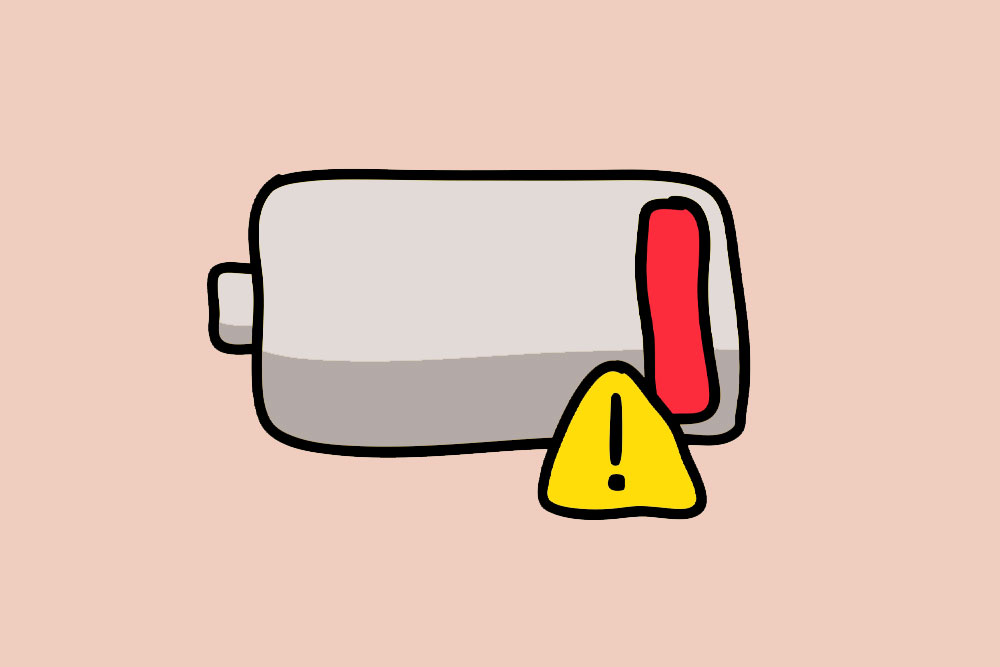Coping With Pregnancy Exhaustion

You can’t hit snooze through the first trimester, but some things can help.
Experts: Margaret Dow, MD, OB-GYN; Roger Harms, MD
Your pregnancy test comes back positive, and you feel on top of the world—but then fatigue strikes. Although you’ve likely read about it (along with cravings, morning sickness, and all the other early pregnancy symptoms), you probably weren’t prepared for just how tired you’d really be.
It’s common for women to experience fatigue during the first trimester, and some even fight it throughout their entire pregnancies. Growing a human being is a serious undertaking, so it should be no surprise that pregnancy can take a lot out of you. A 2019 research report from Science Advances studied the limits of human endurance and determined that the intense physical demands of pregnancy could be equated to running a 40-week marathon (to which all pregnant and formerly pregnant people say amen).
“The weeks at the end of the first and the beginning of the second trimester will always be known as the time of ‘bone-crushing fatigue’ in the tale of my pregnancy,” says mom JulieAnn Lawson in Seattle, who suffered from severe tiredness and had trouble staying awake throughout the day early on in her pregnancy, to the point of nodding off in work meetings.
If, like Lawson, you’re trying to figure out how to simultaneously grow a baby and get through the day on little-to-no energy, rest assured there are ways to cope.
Spot Possible Problems
To a certain extent, fatigue is simply something you have to deal with during the first trimester. There’s no surefire way to bypass it altogether, and you should expect to operate at a lower energy level for a while.
However, there is a difference between typical pregnancy fatigue and the kind that may indicate that something is off. “The first element is the persistence of the fatigue after 12 to 13 weeks of pregnancy,” advises Roger W. Harms, MD, associate professor in the OB-GYN department at the Mayo Clinic in Rochester, Minnesota. “Most normal pregnancy fatigue improves dramatically by then.” If yours hasn’t, it’s a good idea to talk with your prenatal health care provider.
“The most common cause [of persistent fatigue] would likely be iron deficiency anemia due to a failure to keep up with the iron demands of the pregnancy,” explains Dr. Harms. Thyroid status could also be a factor, he adds. “Hypothyroidism is common in younger women and a very important consideration to protect baby’s health.”
Emotional health can play a role in how you’re feeling, too. “In some cases, depression masquerades as simple fatigue,” says Dr. Harms. “If you aren’t doing much because you don’t really care to, that might be depression. If you aren’t doing much, but you really want to, that is fatigue.”

Strategies To Fight Fatigue
So how can you cope, especially if you’re working or caring for older children? There’s good and bad news when it comes to pregnancy fatigue. The good news is: Things often get better after the first trimester. The bad news: You’re still going to have to deal with it in the meantime. However, that doesn’t mean you’re helpless.
Eating a balanced diet can positively impact the way you feel. “Some practices that help include eating regularly and avoiding simple sugars that can lead to blood sugar slumps,” says Margaret Dow, MD, an OB-GYN at Olmsted Medical Center in Rochester, Minnesota. “Caffeine in [moderate] amounts is generally OK, and unsweetened coffee or tea may provide a small boost early in the day. Smaller, more frequent meals can also help keep blood sugar levels steady.”
According to the American College of Obstetricians and Gynecologists (ACOG), pregnant people should aim to consume no more than 200 milligrams of caffeine per day, which equates to about a single 12-ounce coffee. Most caffeinated teas are also considered safe in moderation, however, some herbal teas contain ingredients that are risky during pregnancy and should be avoided, such as rose hips, alfalfa, nettles, and more. You should always check with your doctor before consuming caffeinated or herbal beverages, including coffee, tea, soda, and energy drinks.
And don’t forget the value of pregnancy-approved exercise. “Moderate activity can improve sleep, help with many of the common musculoskeletal pains of pregnancy, and increase energy levels,” says Dr. Dow. “Even just a short 10 to 15-minute walk makes a difference.” Current guidelines recommend pregnant women without complications participate in moderate exercise for at least 30 minutes most, if not all, days of the week. For added incentive, Dr. Dow notes that emerging data points to an association between maternal exercise in pregnancy and improved cognitive function in children.
Keeping Up at Work and Home
Whether you’re dozing off at your desk or struggling to keep up with the boundless energy of an older child, you’re not alone.
“There were times I almost couldn’t fight [to keep] my eyes open,” says Lawson. “I would drift off in meetings and have to focus on breathing deeply just to stay awake.” Accept the reality, and get help with kids and work responsibilities whenever possible, Dr. Harms recommends.
See if there’s a place at your place of work where you can rest or take brief naps. In some cases, sharing the news of your pregnancy a little earlier than planned allows bosses and co-workers to be more understanding because they know the reason behind your heightened fatigue.
Once Lawson told her colleagues she was pregnant, she was able to rest assured people didn’t think she was just lazy or irresponsible. She could also use the designated nursing room for a catnap without interruption from other people in the office.
If you have older children to care for, recruit help from family or friends to take some of the pressure off. Ask your partner or a relative to take your child to the park or on another active outing so they can release some energy and you can get some rest. If your budget allows, consider hiring childcare to help get you through. The fatigue won’t last forever, so you may only need to factor in the expense short-term.
If extra help isn’t an option, try keeping playtime low-key. While you may not have enough energy for games of tag or hopscotch, you can still connect in other ways such as by reading books, building puzzles, or working on a low-mess art project. You can also enlist the help of open-ended play toys, such as a Pikler Triangle or a Nugget that allow for mobility and adventure without actually having to leave the house—or even the sofa! And when in doubt, turning on the most recent season of Bluey is always an easy win. What’s more important is that you and your growing baby get the rest you need. It’s not easy to come by, but you’ll be back to feeling like yourself soon enough.







